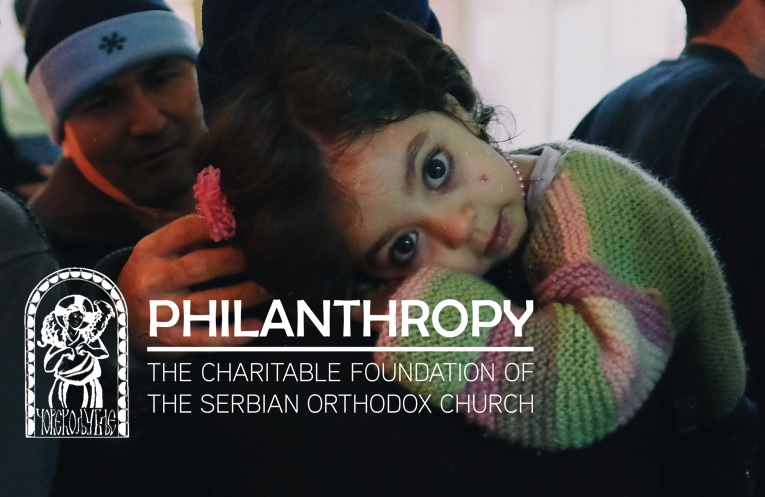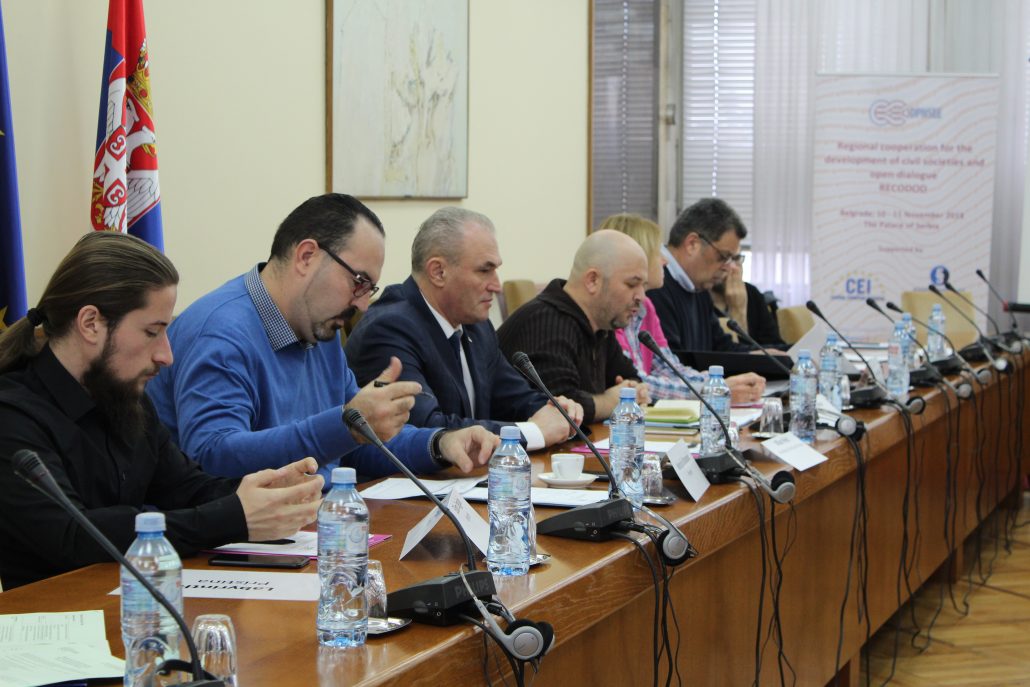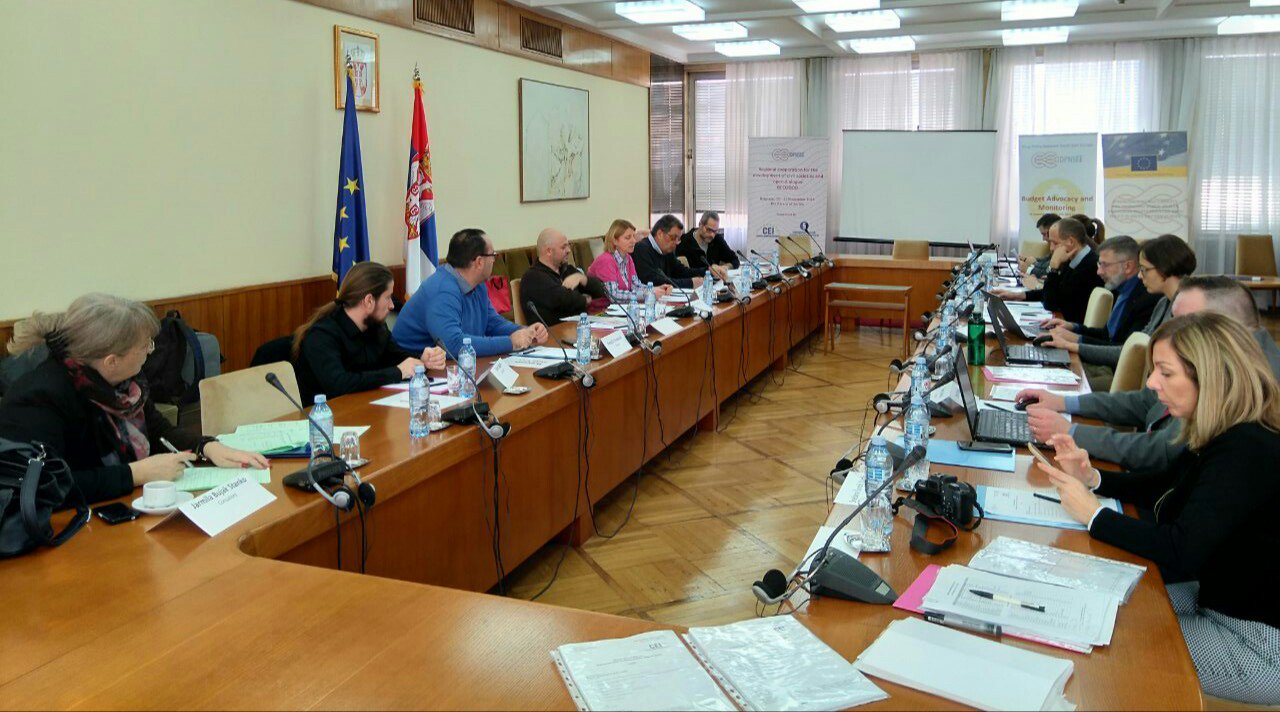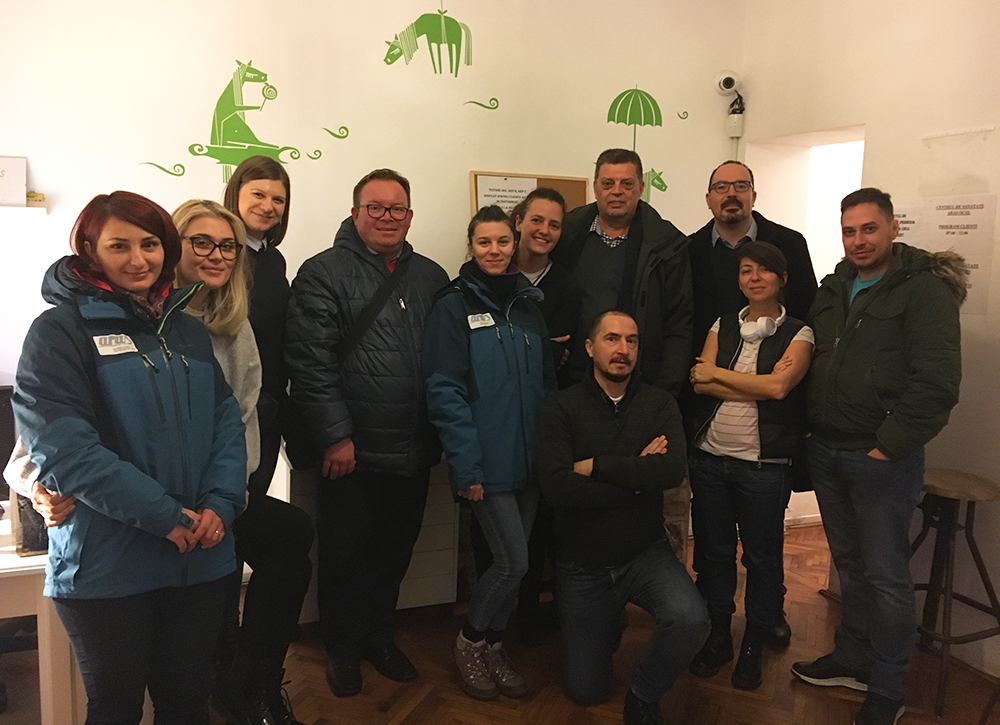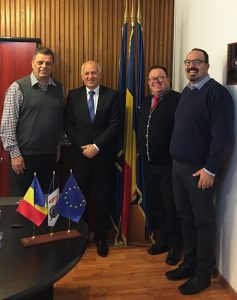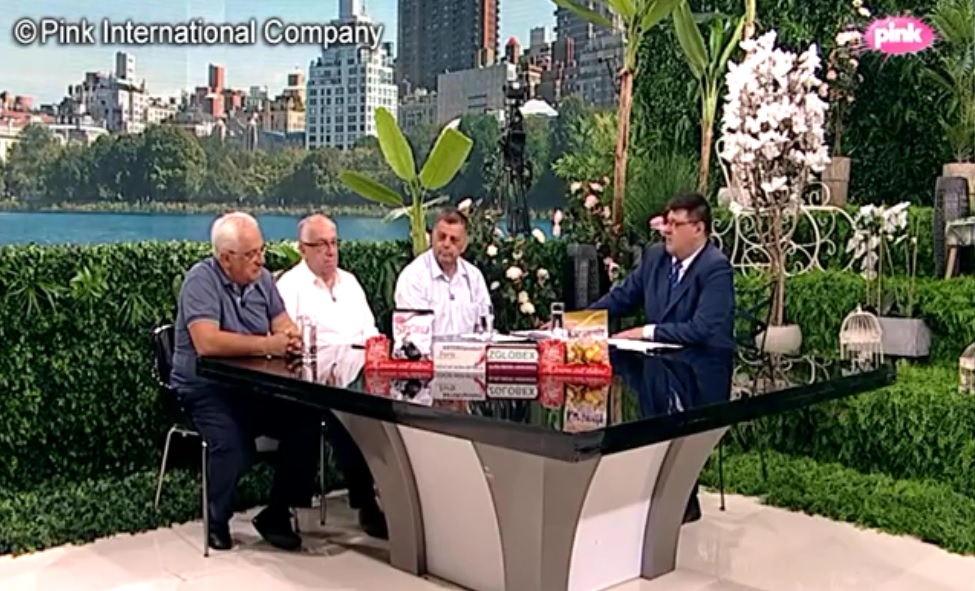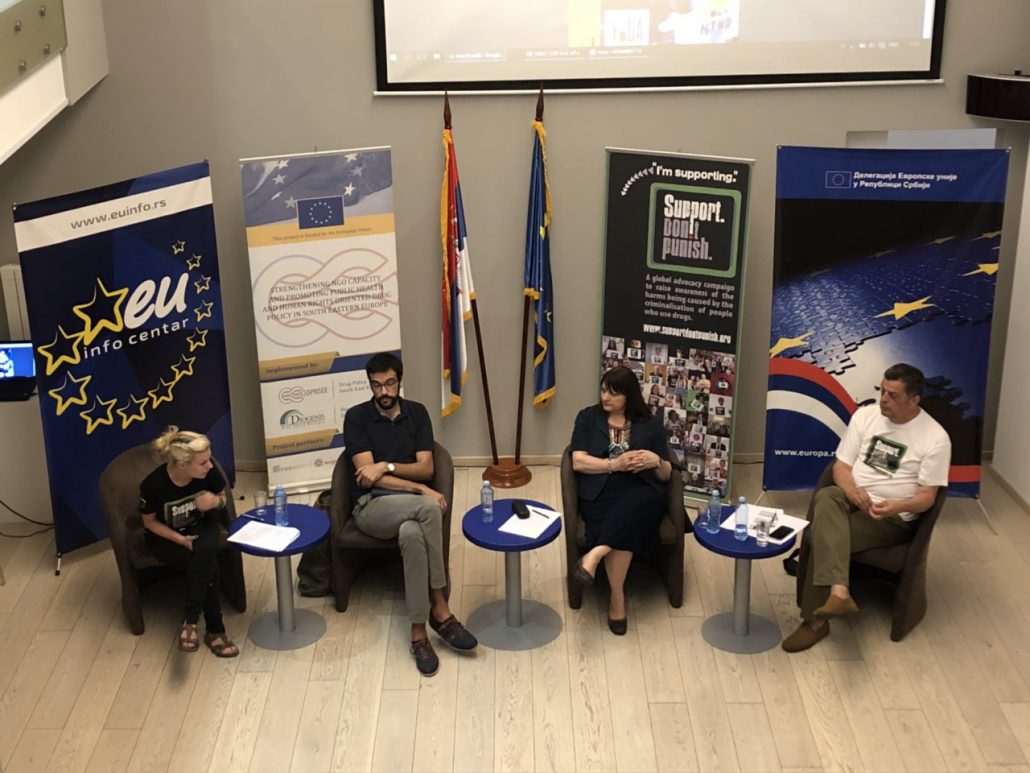Combating intolerance and promotion of equality were the topics of the Conference held on 17 September 2019 in Belgrade by the Council of Europe with participants from the Government of Serbia, Parliaments of Bosnia and Herzegovina, France and Serbia, representatives of the European Commission Against Racism and Intolerance (ECRI) as well as the representatives of equality bodies, civil society organisations, international organisations and a number of embassies in Serbia.
For the Government of Serbia, the process of EU integration remains a priority with an emphasis on the respect for human rights, rule of law and democracy. The Deputy Prime Minister Ms Zorana Mihajlović highlighted that increase of intolerance among young people and violence in schools needs to be addressed by the joint efforts of the Government, independent bodies and civil society organisations. The Head of Government Office for Human and Minority Rights, Ms Suzana Paunović, emphasised the importance of identifying and sharing good practices in addressing intolerance and promoting equality. In that context, the joint European Union and Council of Europe “Horizontal Facility for the Western Balkans and Turkey 2019 – 2022” was recognised as one of the instruments which should boost and facilitate the exchange of good practices among its Beneficiaries.

The Head of Council of Europe Office in Belgrade, Mr Tobias Flessenkemper, highlighted that bringing democratic and pluralist society and respecting equal dignity of all human beings remain the prime objectives for the European societies. Furthermore, he added that today’s gathering allowed to mark the 70th anniversary of the Council of Europe as well as 25 years of ECRI as well as the multiple efforts by the Serbian civil society. He concluded by underlining that Europe’s future demands from individuals and groups will address not only tolerance but also the will to act together, combining their diverse contributions.
The Head of Delegation of the European Union to Serbia, H.E. Ambassador Sem Fabrizi highlighted that intolerance and discrimination are a common challenge. They are widespread not only in Serbia, but in many countries of the world. The situation can be improved and changed only with a strong political will of the authorities to react to any form of intolerance promptly and adequately. In that way, a powerful message would be sent to those denying rights of all people, that such behaviour is not acceptable and would not go unpunished. H.E. Ambassador Jean-Louis Falconi, Embassy of France in Serbia, highlighted that strengthening the rights of Europeans also means emphasising social rights and further linking them to the European Union law.
At her keynote speech, Vice-Chair of the European Commission Against Racism and Intolerance (ECRI) Ms Maria Daniella Marouda concluded that in order to effectively combat intolerance and promote equality more must be done to project a positive image of a diverse society and to explain better the advantages stemming therefrom. Openness and tolerance in a society can only be genuine if they are not limited to certain predefined groups but embrace everyone. All persons must be protected against discrimination including those not belonging to national minorities or other vulnerable groups. A fairer society, where respect for difference is acknowledged as normal, is of benefit to all individuals.
The conference Combating Intolerance and Promoting Equality is jointly organised by the Council of Europe Anti-discrimination Department, the Council of Europe’s anti-racism body (the European Commission against Racism and Intolerance – ECRI) and in co-operation with the Serbian Government and the Commissioner for the Protection of Equality under the auspices of the French Presidency of the Committee of Ministers of the Council of Europe. It is held under the Action Promotion of diversity and equality in Serbia funded through the joint European Union and Council of Europe programme “Horizontal Facility for the Western Balkans and Turkey 2019 – 2022”.
At the Conference, DPNSEE Executive Director met and discussed with potential partners, especially Head of Council of Europe Office in Belgrade, representatives of the Ministry of Labour, Employment, Veteran and Social Policy, Deputy Republic Public Prosecutor and colleagues from the civil society sector.
The French Ambassador to Serbia Jean-Louis Falconi invited all participants of the Conference for a reception in the Embassy. That was the opportunity for DPNSEE Vice-President Nebojša Đurasović and Executive Director Milutin Milošević to get introduced to the Ambassador and briefly present him the situation with drug policy and HIV in Serbia. Mr Falconi expressed interest in the issue and promised to keep contacts on the issue.




 During the session on Prevention of infectious diseases, DPNSEE Executive Director Milutin Milošević presented Situation in the Western Balkan countries. Besides presenting the Network and briefly describing the type of data that are available to us, a detailed view on the situation in the Western Balkan countries was given including prevalence of HIV, HCV, HBV among people who inject drugs, provision of harm reduction services and access to treatment, barriers and challenges and relevant policies in the region.
During the session on Prevention of infectious diseases, DPNSEE Executive Director Milutin Milošević presented Situation in the Western Balkan countries. Besides presenting the Network and briefly describing the type of data that are available to us, a detailed view on the situation in the Western Balkan countries was given including prevalence of HIV, HCV, HBV among people who inject drugs, provision of harm reduction services and access to treatment, barriers and challenges and relevant policies in the region.



 Challenges and perspectives in the field of addiction prevention – the first expert conference about contemporary approaches and models of work with children and youth in Bosnia Herzegovina was held on 26 and 27 of June 2019 in Sarajevo. Association for addiction prevention
Challenges and perspectives in the field of addiction prevention – the first expert conference about contemporary approaches and models of work with children and youth in Bosnia Herzegovina was held on 26 and 27 of June 2019 in Sarajevo. Association for addiction prevention 
